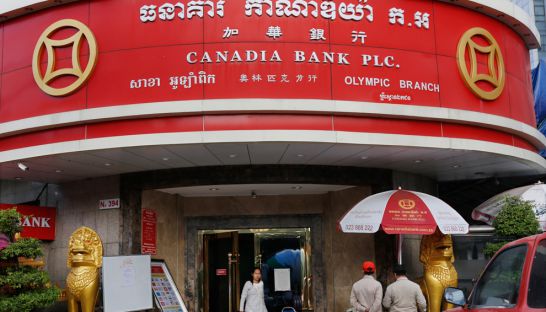Cambodia: IMF urges boost to tax system
Cambodia’s economy continues to perform strongly, but the government will face rising spending pressures that need to be tackled by enhanced revenue collection through more stringent tax measures to contain near-term deficits, the International Monetary Fund (IMF) said yesterday at the conclusion of its annual Article IV consultation.
“Cambodia over the medium term faces several important pressures relating to development including improving infrastructure,” said IMF economist Jarkko Turunen. “And as Cambodia moves up in terms of income, the sources of [government] income will change and the country will receive fewer grants as a higher income economy.”
In this context, he said that improving tax revenues is vital and can be done through the government further strengthening tax administration and introducing reforms that would help over the medium term.
“Prudent fiscal management in recent years has kept fiscal deficits in check and public debt low,” he said, adding that increased tax collection in 2016 had increased revenues to over 15 percent of GDP. “But this year fiscal deficit is projected to widen to about 3.7 percent of GDP, owing to higher public sector wages and another current spending.”
Nevertheless, the team of economists held a widely positive outlook for the Cambodian economy with growth remaining robust at 7 percent for this year and 2018, despite a “decline in private investment due to election related uncertainties at the beginning of the year”, Turunen added.
“However, we have seen a stronger growth in the tourism and construction sector spending and a somewhat weaker garment sector,” he added.
The report noted that the current account deficit narrowed to 8.8 percent GDP in 2016, compared to 10.7 percent in 2015. The team expected the account deficit to further remain at 8.8 percent for the rest of this year. The IMF noted that foreign reserves have continued to grow, reaching $7.9 billion by the end of June.
Despite the outlook being broadly positive, the mission identified some significant risks, especially in terms of rising credit growth.
“Rapid credit growth over the last several years has led to significant increase in the bank credit-to-GDP ratio close to 70 percent,” the report noted.
The IMF praised the National Bank of Cambodia’s macroprudential policy measures, including the implementation of a higher Liquidity Coverage Ratio, increasing the minimum capital requirements and mitigating banks that take excessive risks.
“The central bank’s measures have been used with the elevated financial sector vulnerabilities especially as non-performing loans increase,” he said. “The central bank is working on a new measure to monitor this and that will give us a better understanding of the overall credit risk.”
The IMF urged the government to develop a crisis management framework and upgrade regulation of non-bank financial institutions.
Stephen Higgins, managing partner of investment and advisory firm Mekong Strategic Partners, said that it appeared the IMF was taking a conservative approach to credit-to-GDP ratio that, when including microfinance institutions, would be closer to 90 percent.
Still, he believed credit growth was naturally starting to slow.
“Credit growth is already slowing down towards a more sustainable level, which we think is around 15 percent or 1.5 times the rate of nominal GDP growth,” he said.
“This would still cause credit to GDP to expand, which is normal in a fast growing economy, but it will be happening at a slower pace.”
While he added that there should be a slowdown in credit for the booming construction sector, he was less concerned about the current levels of tax collection.
“We are seeing the government already doing a lot in terms of tax collection,” he said. “In a fast growing, emerging economy, that level of fiscal deficit is not a significant concern.”
Source: http://www.phnompenhpost.com/business/imf-urges-boost-tax-system


 Thailand
Thailand




